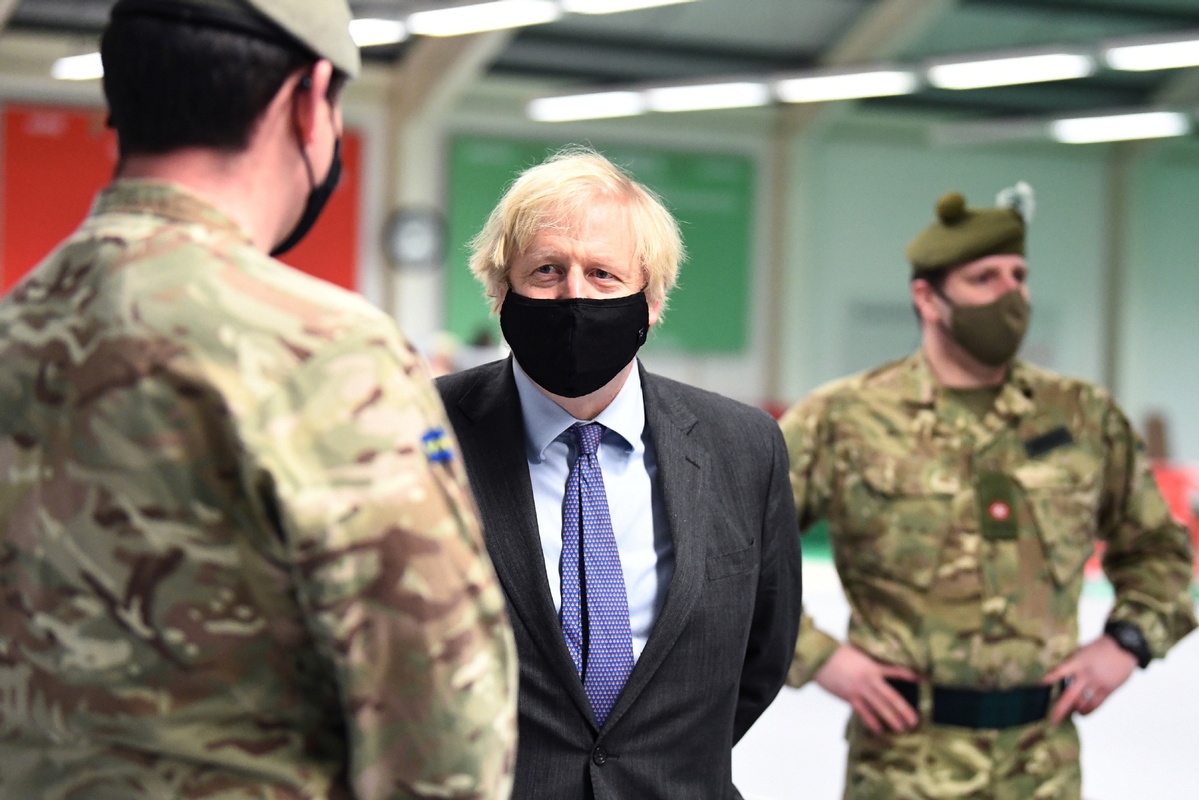Johnson criticized for Scotland trip in lockdown


British Prime Minister Boris Johnson faced accusations on Thursday that he is not abiding by the country's lockdown rules as he visited Scotland to laud the rapid rollout of coronavirus vaccines across the United Kingdom.
With polls showing increased support for Scottish independence from the UK, Johnson's visit to promote the benefits of the union stands to be overshadowed by the lockdown dispute. Although Scotland has its own government in Edinburgh that has an array of powers from public health to education, it remains part of the UK under which London still has huge influence.
The UK has endured Europe's deadliest coronavirus outbreak, and the nation reported 1,239 more virus-linked deaths on Thursday to bring its tally in the pandemic to more than 103,120. However, the country has been among the world's leaders in rolling out a virus vaccination program.
During his trip, Johnson visited a laboratory at the Queen Elizabeth University Hospital in Glasgow, where coronavirus tests are processed, and met British army troops who were setting up a vaccination center in the city, bumping elbows to greet some of the soldiers.
Johnson argues that Scotland benefits directly from his government's approach to getting vaccine shots out quickly.
Critics say the Conservative prime minister is politicking at a time when the UK is in a strict lockdown as a result of a huge resurgence of the virus that Johnson has largely blamed on a more contagious variant first identified around London and southeast England.
Scottish First Minister Nicola Sturgeon has described Johnson's visit as "not essential".
Sturgeon, whose Scottish National Party wants to hold another referendum on Scotland's independence, is way ahead in polls ahead of a general election in May, with some showing support at more than 50 percent.
Another referendum
Should her party win a clear majority, Sturgeon has said she will look to hold another vote on Scotland's future. Johnson, who under the law would have to back a referendum to make it legal, has indicated that he won't do so. He argues that as recently as 2014 Scotland voted to stay part of the UK by a clear majority.
"I think endless talk about a referendum, without any clear description of what the constitutional situation would be after that referendum, is completely irrelevant now to the concerns of most people who, I think, want us to beat this pandemic and come through it strongly together," Johnson said.
Sturgeon claims the situation has changed dramatically since the 2014 independence referendum because Britain has left the European Union, even though voters in Scotland overwhelmingly backed remaining part of the bloc. That break, which Johnson campaigned for, became a harsh business reality on Jan 1.
Agencies, Jonathan Powell in London and Xinhua contributed to this story.
































